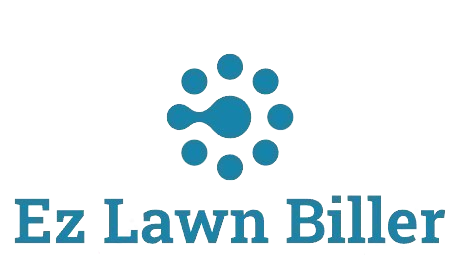Ensure your lawn care business thrives while staying compliant with regulations. This guide covers essential practices for legal adherence.
How to Stay Compliant Your Lawn Care Business
Staying compliant is crucial for any lawn care business as it not only safeguards your operations but also enhances your reputation in the industry. Compliance involves adhering to local, state, and federal regulations concerning labor laws, environmental standards, and business practices. In this comprehensive guide, we will explore essential strategies, regulatory considerations, and tips for maintaining compliance in your lawn care business. From understanding licensing requirements to implementing effective billing practices, we aim to equip you with the knowledge necessary to navigate the complexities of compliance.
As the lawn care industry continues to grow, so do the challenges related to compliance. Business owners often find themselves facing various regulations concerning pesticide use, employee safety, and environmental impact. By prioritizing compliance, you can not only avoid costly penalties but also build trust with your clients. This article will cover the key areas you must focus on to ensure your lawn care business remains compliant and competitive.
Understanding Local Regulations and Licensing
One of the first steps to ensuring compliance is understanding local regulations and obtaining the necessary licenses for your lawn care business. Each state and municipality has specific requirements that govern the operation of lawn care services. These can include licenses for pesticide application, business permits, and landscaping certifications. Failure to acquire the proper licenses can result in heavy fines and operational shutdowns.
For instance, many states require lawn care professionals to obtain a pesticide applicator’s license, which often involves passing an exam and completing continuing education courses. It’s essential to check with your state’s agricultural department or local government offices to gather information about these requirements. Ensuring your staff is adequately trained and licensed not only adheres to regulations but also enhances service quality.
A good approach to keep track of licensing is to create a compliance calendar. This should include renewal dates for your licenses and certifications. Moreover, using software like lawn billing software can help manage documentation and reminders efficiently, thus ensuring you never miss a compliance date.
Pesticide and Chemical Regulations
Pesticide regulations are a significant concern for lawn care businesses. Because pesticides can have a profound impact on human health and the environment, regulations surrounding their use are stringent. Lawn care providers must be familiar with the types of chemicals they use, their proper application methods, and any restrictions placed on them by the Environmental Protection Agency (EPA) or local authorities.
It’s prudent to keep a detailed record of all chemicals used in your operations. This includes product names, application dates, and the areas treated. Such records not only ensure compliance but also serve as valuable references in case of any disputes or inspections. Additionally, consider using certified organic products where possible, as this may reduce regulatory burdens and appeal to environmentally conscious customers.
Moreover, offering training for your employees on the safe handling and application of pesticides can significantly mitigate risks associated with chemical use. Implementing a comprehensive safety program that includes personal protective equipment (PPE) requirements helps protect your workers and clients alike.
Employee Safety and Labor Laws
Adhering to employee safety regulations is vital for any lawn care business. The Occupational Safety and Health Administration (OSHA) sets forth guidelines that businesses must follow to create a safe working environment. Common hazards in the lawn care industry, such as exposure to chemicals, equipment-related injuries, and heat stress, necessitate rigorous safety protocols.
To stay compliant, ensure that you provide adequate training for your employees on safety practices, including the correct use of machinery and safety gear. Regular safety meetings and inspections can enhance awareness and promote a culture of safety within your team. Additionally, maintaining records of safety training and incidents is crucial for compliance and can protect your business in case of audits.
It’s also essential to be aware of labor laws that pertain to your workforce. This includes understanding wage requirements, overtime regulations, and employee benefits. Keeping detailed records of employee hours, pay, and benefits can help safeguard against potential disputes and claims.
Environmental Compliance and Sustainability Practices
Environmental compliance is increasingly becoming a focal point for lawn care businesses. Many regions have regulations that restrict certain practices that can harm the environment, such as excessive pesticide application, poor waste disposal, and the use of non-sustainable materials. Adopting environmentally friendly practices not only helps you stay compliant but can also attract a broader clientele.
Consider implementing sustainable landscaping practices like water-efficient irrigation systems, native plant selections, and organic fertilizers. These practices not only benefit the environment but can also lead to cost savings in the long run. Customers are becoming more environmentally conscious, and promoting your business’s commitment to sustainability can be a strong selling point.
Additionally, understanding local laws concerning waste disposal, particularly for plant debris and chemical containers, is critical. Establish a waste management plan that complies with local regulations to avoid penalties. An investment in training your team on sustainable practices can further enhance your business’s reputation and compliance standing.
Billing Practices and Documentation Compliance
Effective billing practices are essential for compliance, particularly in maintaining clear records of services rendered and payments received. Using a comprehensive lawn service software can streamline billing processes and ensure that all invoices are accurate and timely. This software allows you to customize invoices, automate recurring billing, and keep detailed records of client interactions, which is crucial for compliance.
Moreover, it’s important to keep all client agreements and service contracts well-documented. Clear contracts can protect your business and ensure that clients understand the services provided and the associated costs. Regularly updating these documents according to industry standards and legal requirements is also advisable.
Utilizing cloud-based software for billing not only enhances accessibility but also improves security. A reliable lawn billing system keeps all your financial records organized and ensures you have the necessary documentation ready for audits or inspections.
Regular Compliance Audits and Assessments
Conducting regular compliance audits is a proactive approach to ensure your lawn care business adheres to all applicable regulations. These audits can help you identify potential areas of non-compliance before they become significant issues. Setting a schedule for internal audits can help maintain accountability and ensure that all practices remain up to date with changing regulations.
During an audit, review your licensing, employee training records, chemical use logs, and safety equipment inspections. This thorough review can help clarify any gaps in compliance and allow you to address them promptly. Additionally, consider engaging a third-party compliance consultant who can provide an objective assessment and offer guidance on best practices.
Investing in compliance not only helps avoid legal issues but also fosters a culture of accountability within your business. Ensuring that your team understands the importance of compliance can lead to better practices and a more efficient operation overall.
Building Client Trust through Transparency
Transparency with clients regarding your practices and compliance efforts can significantly enhance trust and credibility. Educating your clients about the measures you take to comply with regulations demonstrates your commitment to quality service and safety. Sharing information about your licensing, training programs, and sustainable practices can strengthen your relationship with clients.
Further, consider providing clients with regular updates about any changes in regulations that may affect them. For example, if local laws regarding pesticide application are updated, informing your clients can show that you prioritize their safety and well-being.
Utilizing customer-friendly software can also enhance communication. For instance, using a lawn service app to send out invoices, service reminders, and updates can improve client engagement and satisfaction. Such proactive communication strategies can ultimately lead to improved customer loyalty and retention.
Conclusion
In conclusion, maintaining compliance in your lawn care business is not just a legal necessity; it is a vital component of building a trustworthy and reputable operation. By understanding local regulations, prioritizing safety, adopting sustainable practices, and implementing effective billing systems, you can safeguard your business against potential issues.
Regular audits and transparent communication with clients will further solidify your commitment to compliance and quality service. As you prepare your lawn care business for success, remember that compliance is an ongoing journey that requires diligence and adaptability.
With tools like lawn billing software, you can simplify your processes, enhance efficiency, and focus on delivering exceptional lawn care services. Start prioritizing compliance to ensure your business thrives in a competitive market while fostering trust among your clientele.




